Can we take a moment and acknowledge how hard it is to be alive? And in particular to be alive right now? I keep thinking about this New York Times article detailing how in the retail world, adults are acting like children because they are unable to cope with the stress of life. Grown men are screaming because the grocery store is out of the cheese they want. Women are becoming inconsolable because their packages are delayed. In the U.S., and likely other parts of the world, we are not doing well, emotionally speaking.
Many of us don’t know how to handle our feelings and instead turn to something external to cope. For instance, at the start of the pandemic, Forbes posted an article about how people are consuming more alcohol, smoking weed, playing video games, eating a lot of junk food, binge-watching Netflix and adult films more than ever before. But that trend hasn’t stopped. More recently in September 2021, USA Today shared that nearly 1 in 5 Americans are heavily drinking. Heavy drinking is defined as four or more drinks per day for women and five or more drinks per day for men, twice in a single week.
When life feels hard, give us something to feel better. And I get it, I really do. I’m an addict in recovery. I know all about turning to something external to feel better because I did it for years. But does repressing or suppressing emotion work? Ever? For anyone? Or instead are people turning into small children because they’re no longer able to be instantly gratified?
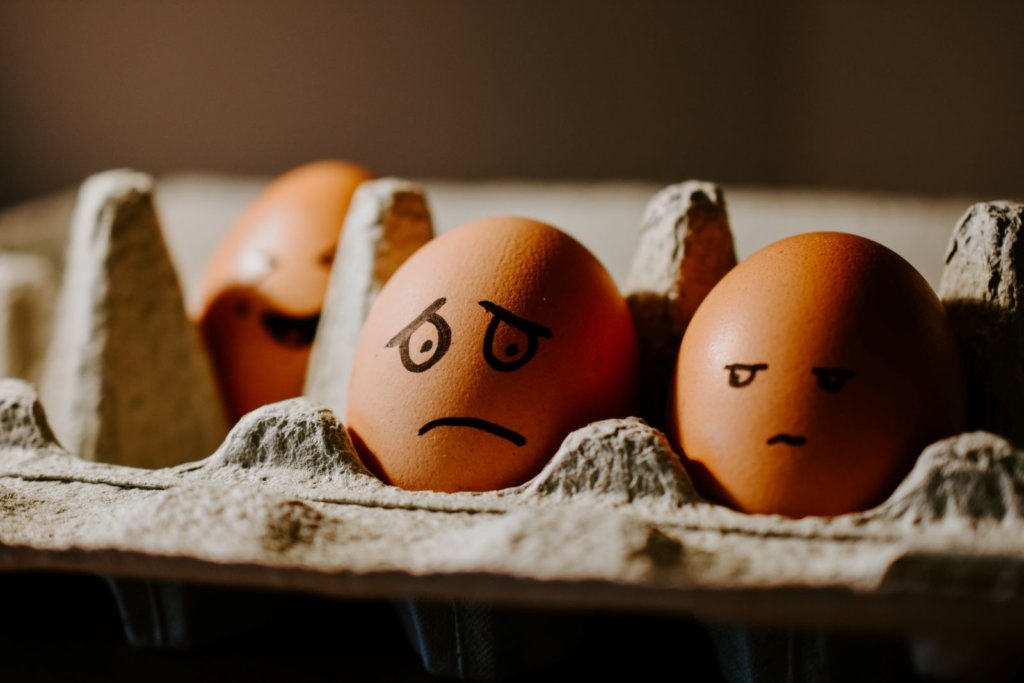
These eggs! So expressive. Photo by Hello I’m Nik on Unsplash
Emotions are meant to be felt. They are a form of energy in our bodies that must be moved, must be expressed. When there’s a loss, the best thing to do is to cry, not get drunk. Tears literally make you feel better because they release the chemicals oxytocin and endorphins. If you’re angry, don’t scream at a grocery store clerk, express it in a safe way by yelling at an empty cup that represents the person who crossed a boundary, or writing a letter you never send, or whatever. Taking out your anger on someone as collateral damage is not OK.
We’ve forgotten how to feel our feelings in this culture because we have so many quick fixes at our disposal. But this pandemic is doing away with those quick fixes, at least some of them. Are we crying about that? Are we weeping for our losses, not only deaths, but the loss of certainty, connection, freedom, normalcy, and more? I know for some people it’s hard to cry or it may not feel safe to cry. If that’s you, you’re not alone. I highly recommend checking out the Westfeldt Institute for Emotional Hygiene because this is what they specialize in – emotional regulation. You can also listen to season one of the podcast “The Healing Feeling Shit Show.”
Feeling your feelings not only helps you, but it helps others. The world needs more adults. We’re witnessing what happens when inner children are at the helm and it’s not pretty. Being an adult is not only about making money, it’s also knowing what to do when you feel scared, angry, or sad. I have zero interest in being screamed at because I looked at someone funny and I have zero interest in retail clerks consoling a customer because the shop ran out of dish soap. Can we not? Can we instead feel our feelings? It’s not always easy but it’s worth it.
I dream of a world where we practice emotional regulation in healthy ways. A world where we feel our feelings as they arise. A world where we take care of ourselves and each other by acting like adults when life gets challenging. A world where we know what to do when we have a feeling.
Another world is not only possible, it’s probable.
My spiritual teacher uses the word “beatitude” a lot because that is his wish for everyone, that we all experience felicity of the highest kind, or consummate bliss. That got me thinking about bliss, what it means to be blissful, and how that squares with, well, life. For instance, on New Year’s Day, my parents and I found the back window of our car rental smashed in. How does that fit in with consummate bliss?
I don’t know because I’m just a human being, but what I do know, according to my spiritual philosophy, is every entity is moving from crudeness toward subtlety (some more quickly than others). The image that comes to mind is that of a river flowing toward the ocean. A current is carrying us from where we are now to somewhere else. Parts of the river are calm, others are choppy. While flowing down this river we may experience anger, fear, or sorrow, but the one constant is the water itself. Maybe bliss is like that. Maybe it’s the ever-present water below carrying us forward.
In my spiritual tradition we have a word for viewing the world from this lens. It’s called madhuvidyá. Madhuvidyá literally means “honey knowledge” and requires seeing everything, EVERYTHING, as an expression of an infinite loving consciousness, also known as Brahma. Yes, that means our car rental window getting smashed. It also means all the bad things, all the irritations, all the whatever that seem anything but blissful.

Working on this “honey knowledge” thing. Photo by Arwin Neil Baichoo on Unsplash
“This universe of ours is not absolute truth – it is only a relative truth,” my spiritual teacher says. “So the wise should try to know the absolute truth. But simultaneously it is also desirable that while striving to realize the Supreme Entity one should maintain an adjustment with this relative world. While doing one’s duties properly with the application of madhuvidyá, one can achieve permanent cessation of afflictions from this relative world. Then all the entities of this world will be as sweet as honey for the spiritual aspirant.”
That’s what I want for myself. I want all the entities of this world to be as sweet as honey. Not in a spiritual bypassing sort of way, but a recognition of both the relative truth and the absolute truth. The relative truth is I was so pissed off about the smashed window I screamed at the top of my lungs, cussing out whoever did it. And the absolute truth is the glass scattered across our backseat, the person or people who broke the window, and whatever they used to break it, are also Brahma, are also love, are also the Supreme.
As I enter this new year, it will be easy to fall into the trap of seeing things in black and white. Or labeling them as good or bad. But maybe I can also keep in the back of my mind that I’m evolving, the world is evolving, and the river we’re traveling on will never run smooth. But regardless, the water pushing us forward is there, is steady, is constant, and quintessentially is love itself.
I dream of a world where we can hold relative truths as well as the absolute truth. A world where we understand rough things will happen to us but love is still there. A world where we realize we’re all on a river moving forward in our evolution. A world where we do our best to lace our perspective with honey knowledge so that we can experience untold sweetness.
Another world is not only possible, it’s probable.
As I continue to grapple with the death of a friend and beloved member of my community who died from COVID-19 due to not being vaccinated, I keep thinking about a twist on an Al-Anon phrase: “Give people the dignity of their choices.” As you know, there is nothing more controversial, more hot-button, more likely to cause a debate than COVID-19 vaccines in the age of this pandemic. I’m not telling you anything new. You’ve likely witnessed this debate or had it yourself.
Each camp – the vaccinated and unvaccinated – staunchly argues their case. Each camp cites information, tries to convince the other, justifies their own choices, but I’m not sure how much good it’s doing. My friend that died knew the facts. He knew more unvaccinated people than vaccinated are dying of COVID, are filling hospital beds, and yet he chose to “trust his immune system.” He decided to gamble that he would be fine if he contracted COVID-19. He wasn’t fine and yeah, I’ve been angry about it, sad about it, but ultimately, it wasn’t my choice. It wasn’t my decision to make. Me? I chose differently. But here’s what Al-Anon taught me: There comes a point where we all have to recognize we can’t force people to do something they don’t want to do.
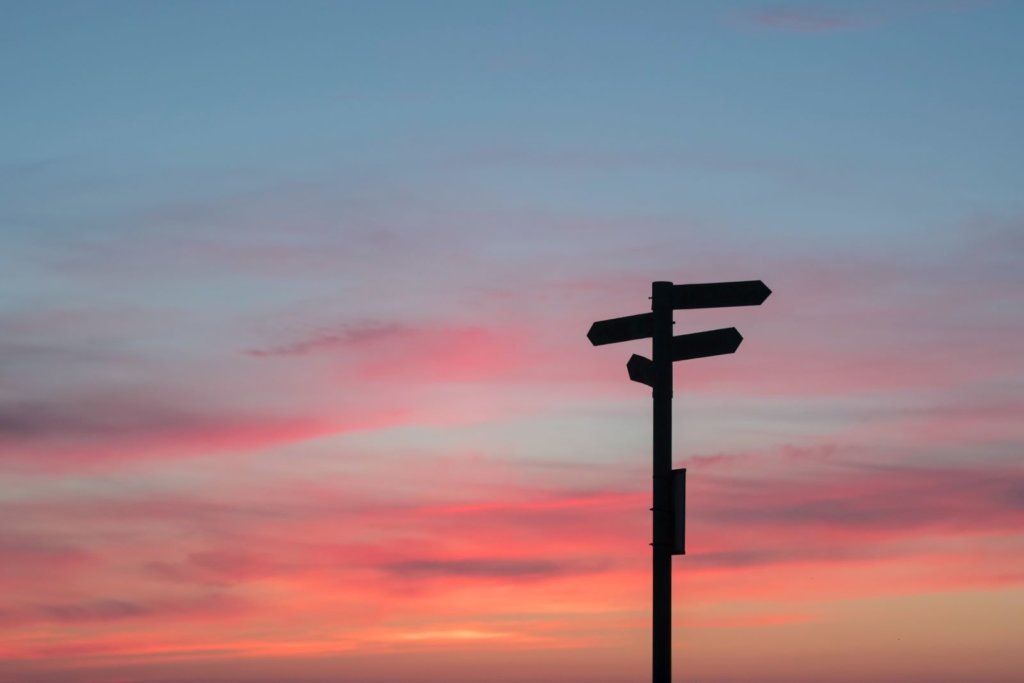
Let people make their choices. Photo by Javier Allegue Barros on Unsplash
In the world of Al-Anon, which is a program for friends and family members of addicts, they learn there is no secret formula that convinces an addict to stop using. They know it doesn’t matter how many tears, how much literature, how much pleading they do with the addict in their life, they can’t force the addict to quit. They are not in control of the addict’s choices. Granted, they don’t have to stand by and watch the addict head to an early grave either, but there’s a point where they understand what it means to be powerless.
Powerlessness over other people seems like something we’re all learning right now. Is forcing people to get vaccinated helping? Or instead, are healthcare workers quitting over vaccine mandates? What exactly are vaccine mandates accomplishing? In the U.S., it’s helping a little, but it’s also sparking lawsuits and public outcry. It seems to me some people feel oppressed because their choices are not being honored.
Do I wish everyone who is able to get vaccinated does so? Of course I do. But at this point I’m recognizing not everyone will because they haven’t. And instead of shouting at them until I’m blue in the face, I’m taking a page from Al-Anon and letting people have the dignity of their choices. It’s hard, it’s heartbreaking, it feels like graduate-level spiritual work, but these are the times we’re living in.
Ultimately, I want to feel peace and if I’m hopped up on righteous indignation, there ain’t no peace to be had. What brings me peace is recognizing I’m doing what I need to do to protect myself – I’ve been boosted, I’m wearing a mask, social distancing, etc. – but the only person I can take care of is me. Instead of saying, “I’m right and you’re wrong,” how can we create space for everyone to have the dignity of their choices? Because truly, that’s the reality of the world we live in.
As for me, when I allow my friend the dignity of his choice, instead of being filled with resentment over his death, I think of him fondly. I remember his bright smile, the love he had for his son, and his willingness to pitch in wherever he could. And that’s what I’d much rather focus on.
I dream of a world where we support people in making informed choices while also recognizing we aren’t in control of those choices. A world where we make space for disagreement. A world where we let people have the dignity of their choices even if we wouldn’t make them ourselves.
Another world is not only possible, it’s probable.
If you’re anything like me, you’ve heard something to the effect of, “It only takes one person to feel grounded and safe in a crowd to change the atmosphere for everyone else.” It’s a nice sentiment, but is it just a bunch of hokey-pokey b.s.? Can little ole me really have that kind of effect on other people? It turns out, yes.
Emotions are contagious just like colds and scientists think this “emotional contagion” is due to the mirror neuron system. Essentially, when you do something yourself and watch someone else do that exact activity, the same neurons are firing, aka, mirror neurons. Pretty cool right? So how then do emotions catch on? According to this article in Healthline, it happens in three stages: mimicry, feedback, and experience.
Mimicry is just what it sounds like: mimicking someone else. If I smile at you, chances are you’re going to smile back at me. However, typically your reaction is not conscious. It’s happening automatically. But that mimicry has a ripple effect and creates feedback in the brain and body. For instance, if you’re mimicking my smile, even if originally you felt cranky, just by smiling, you’ll feel happier. And that feedback will create a response in you so that you actually are feeling happier. That’s the experiential part of emotional contagion. You mimicked me, created feedback for yourself, and thus “caught” the emotion I’m expressing.

I don’t know about you, but looking at these folks makes me smile! Photo by Siviwe Kapteyn on Unsplash
What fascinates me about this process is not only the one-on-one contagion, but also the group contagion. We see this with mob mentality, or herd mentality when people are influenced by their peers to adopt a behavior or viewpoint on a largely emotional basis. What we’re all creating is a collective mind. We’re syncing our minds up and this happens whether we want it to or not.
The question then becomes, what to do about that? My spiritual teacher says, “The collectivity is yours. The collectivity is not outside you – your future is inseparably connected with the collective fortune. You must take the entire collectivity with you and move toward the sweetest radiance of the new crimson dawn, beyond the veil of the darkest night.”
Later on, he says, “Now, changes will have to be effected in the mental flow of this collective mind; you will have to create a new wave of thought in it. Because of the manner of human thinking thus far, the pace of human progress has been painfully slow. If it is given a new direction, the speed of progress will be greatly accelerated.”
Frankly, I’m all for moving toward the sweetest radiance of the new crimson dawn and accelerating the speed of human progress. And that means how I feel, how I act, matters. How you interact with other people has an impact. It transmits something and together we create something that wouldn’t have been there before. We are each contributing to a collective mind. But what are we contributing? Is it something that will move humanity forward to a state of equity, justice, love, and respect? Or is it something that creates more discrimination, inequality, and division? Knowing about emotional contagion, what will you choose?
I dream of a world where we recognize how we feel, what we express really does matter. A world where we allow ourselves to be authentic, but also understand we affect and even infect those around us. A world where we are conscious about what we’re contributing to the collective mind because we understand emotional contagion is real.
Another world is not only possible, it’s probable.
The cool thing about having a blog for so long is that sometimes things I wrote in the past are applicable to my life today. That happened to me this week when I reread a post from almost exactly 12 years ago. My life is significantly different now – I no longer work at an office job in San Francisco, for instance – but other aspects are the same, and the message in this blog is just what I needed to hear. I hope that’s true for you too.
I often think I’ve missed the boat in life. That what I want can’t happen because the opportunity passed me by. Or maybe I screwed it up. If I hadn’t said XYZ, then I’d have what I want. If I hadn’t made that one mistake, things would have worked out differently. But is that really true?
In 2007 when I worked in Washington, D.C., my coworkers had a Mother’s Day jewelry sale. I went looking for a gift for my mom and passed by a mother-of-pearl shell bracelet with a T-bar and circle clasp. I didn’t think my mom would like it, plus I don’t like buying parts of animals, so I went back to my cubicle empty-handed. But I kept thinking about the bracelet. I wanted it – not for my mom, but for me. I rushed back upstairs and purchased it (and said a prayer for the mollusk who died to give it to me).
Shortly thereafter I went to a WNBA game with a friend of mine. When the game ended and we started walking toward the exit, I looked down at my wrist and realized my bracelet was gone. (The bracelet is a little bit too big for me and so the T-bar has a tendency to slip from the clasp.) I started searching around me in a panic, checking my pockets, my sleeve, the ground. I retraced my steps, went back to the bathroom to see if it had fallen on the tiles. I scanned the crowded hallway and couldn’t find it. My friend and I went back to our seats and there it was, on the cement, directly below where I was sitting.
Yesterday, while I sat at my desk at work, one of my coworkers came up to me with my bracelet dangling from his fingers and asked, “Is this yours?” I hadn’t even realized I lost it but nonetheless, my bracelet found its way back to me. And then last night on my walk to the chiropractor from work, I realized I lost my bracelet again! I scanned the pavement; I kept my eyes trained on the ground for six blocks searching to no avail. I probably lost it somewhere on my mile walk from work to my apartment. I couldn’t check the office either because today I work from home so I called one of my coworkers and asked her to keep an eye out for it.
What are the odds I will find it? It could have fallen off anywhere. Someone else could have picked it up; it could have been thrown away by someone sweeping the sidewalks. It could have fallen into a sewer grate. In all likelihood my bracelet is gone.
This morning I went to the basement to do some laundry and I looked at the windowsill in the stairwell. Lo and behold, there was my bracelet, waiting for me! (Side note, since this post was first written, I changed the clasp on my bracelet to a lobster claw so it doesn’t keep slipping off.) Of all the places it could have been, of all the possibilities, my bracelet found its way back to me. Some things seem completely illogical, unreasonable, and far-fetched, but if they’re meant to be, they will happen. If you’re meant to have something, you will. In other words, if it’s yours, it’s yours.
I dream of a world where we trust the universe. A world where we shoot for our dreams with full force knowing if it’s meant to be, it will happen. A world where we know magic is real and the impossible is possible. A world where we understand if it’s ours, it’s ours.
Another world is not only possible, it’s probable.
Have you heard the expression, “Expectations are premeditated resentments?” I wouldn’t say that’s wholly true for me because my expectations aren’t about other people, but they have certainly been premeditated disappointments. For instance, I woke up on the morning of my most recent birthday and cried because I’m not at all where I thought I’d be at this age. Yes, the big things like married, but also I thought by this age I’d be living in a more spacious apartment and have signed a literary agent. But I haven’t.
Every year I inflict this kind of disappointment on myself. I make a goal where I say, “By this time next year I’ll ______.” And then inevitably what I set out to achieve doesn’t come to pass because I’m not in control of every aspect of my life. If we’re using the theater metaphor that all the world’s a stage and we’re merely players upon it, I’m instead operating under the assumption I’m the director. As the director, I have a say in what happens upon the stage, but as much as I’d like to be the director, I was cast as an actor. And that means it doesn’t make sense to have expectations for how my future will unfold.
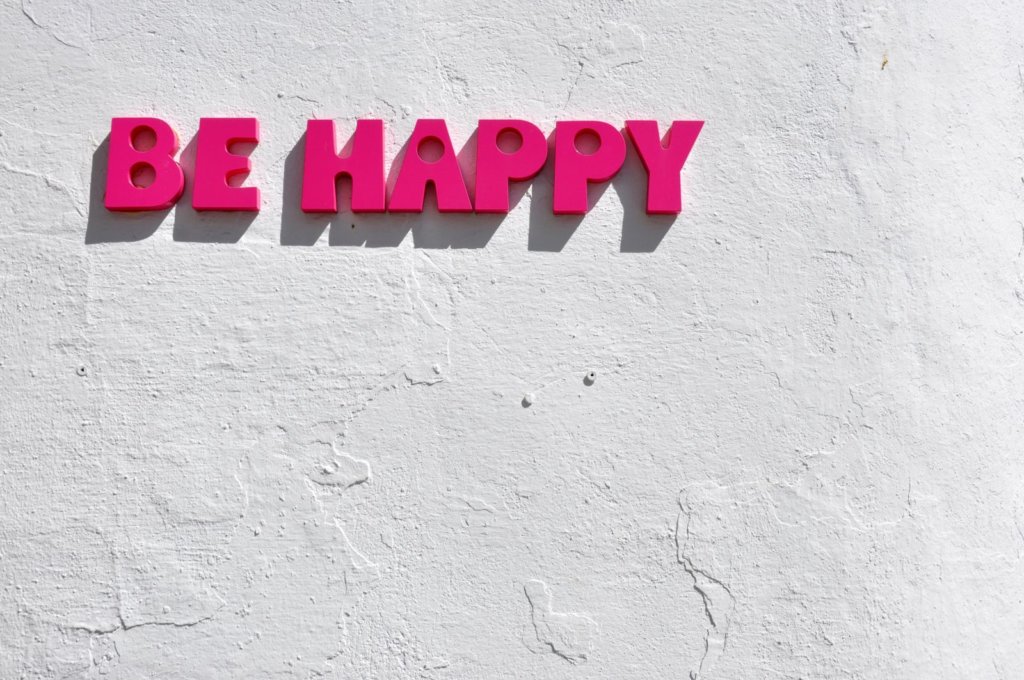
I would like to follow this command. Photo by Alex Block on Unsplash
Having a goal is great, but setting a timeline is not. How can I possibly predict what will happen in the future? I can’t. That’s also the chief complaint of every crowd-funded campaign I’ve ever backed. The creator sets up a timeline and says, “You’ll receive your water pitcher in six months,” or whatever and when that time comes and goes, people get angry and impatient. The timing is almost always off because the creator ran into unforeseen circumstances. It’s the same for me — I’m forever running into unforeseen circumstances.
What if instead of giving goals a deadline, I work toward them and just let my life unfold? What if instead I accepted and enjoyed what’s here, now? Jodi Picoult speaks to this in her novel Nineteen Minutes when she writes, “There were two ways to be happy: improve your reality, or lower your expectations.”
I already work incredibly hard to improve my reality so maybe now is the time to lower my expectations, or better yet, not have any at all. What’s funny is when I googled how to do that, much of the search results focused on lowering expectations in regards to other people and not much about lowering the expectations a person has for themselves. I suspect that because in the U.S. anyway, we have high expectations for ourselves. We believe if we dream it, we can achieve it and on our timeline to boot. You just have to think positively! Create a vision board! Hire a life coach! That all has a place, but so does something every spiritual teacher talks about: surrender.
My spiritual teacher says, “Human beings and other created beings perform a multitude of actions. The ultimate action, however, is … total surrender.” Total surrender means aligning my will with higher power’s will. Total surrender means recognizing I am an actor in this world, not the director. Total surrender means no longer placing expectations upon myself for when something will be accomplished because that only sets me up for disappointment and this year my goal instead is to be happy.
I dream of a world where we remember the recipe for happiness is to improve our reality or lower our expectations. A world where we remember we are the actors upon the stage of life and not the directors. A world where we understand in order to truly feel happy, we have to let go and enjoy what arises when it arises.
Another world is not only possible, it’s probable.
Something I’ve heard before is that physical health is a privilege. When people said that, I brushed it aside because I thought they meant health is something to be grateful for, a blessing, a gift. But now, as I approach my 37th birthday, I recognize physical health is an attribute to be grateful for yes, but it’s also a privilege similar to how we talk about White privilege. Meaning, something most people don’t think about, or take for granted, unless they’re in the group that doesn’t have it.
There’s a lot to say about White privilege but to summarize, it’s the obvious and less obvious passive advantages that White people may not recognize they have. It’s moving through the world with relative ease. Swap out “White” for “healthy” and the privilege is similar (similar but not the same). This post is focusing specifically on physical health, but there is also mental health privilege.
For someone like me – a person recovering from adrenal fatigue, a sleep disorder, digestive issues, a spoonie – I’m not able to navigate the world with relative ease. I’m forever worried my small business will crumble because I can’t work full-time due to limited energy. And supporting myself with a part-time job is challenging, which I know, because I did it for years.
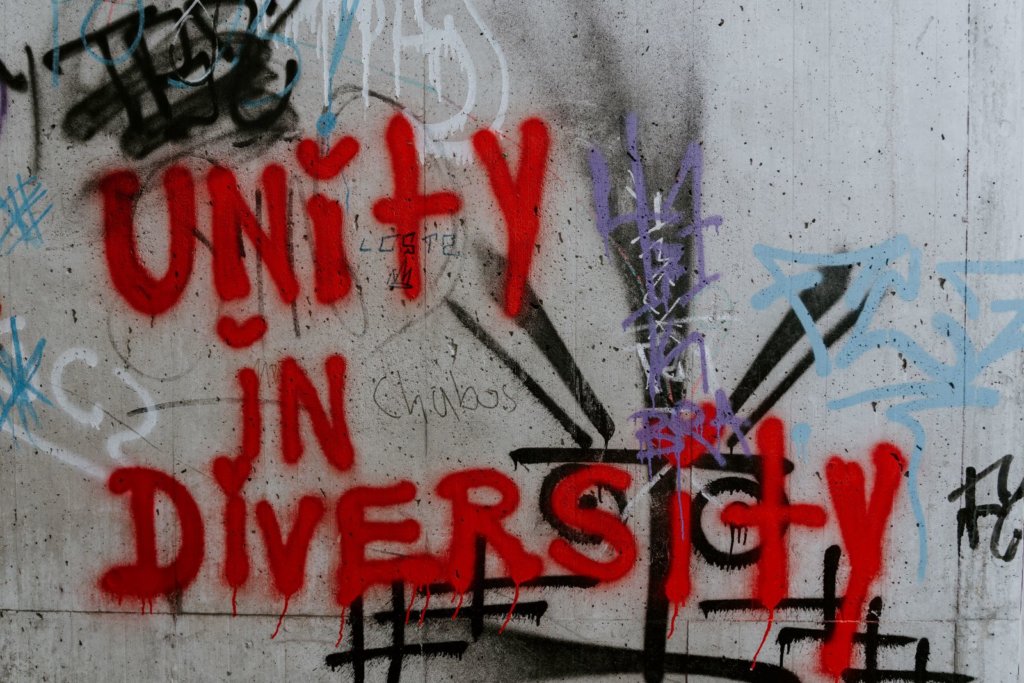
This graffiti says it all. Photo by Claudio Schwarz on Unsplash
In the days before my birthday, I’m crying because I feel like I’m getting older without ever having been young. For only three years in my 20s did I feel mildly energetic, healthy, vibrant, pleased with how my body looked and functioned. The rest of my life has been one issue after another after another. And as I’m crying about my own health challenges, I think about friends of mine, or people I know, who have chronic fatigue syndrome, fibromyalgia, Crohn’s disease, thyroid issues, etc., and I realize we’re sold this image of what is “normal,” of how our bodies are “supposed” to be. Not unlike the ideals sold to us via White supremacy like beauty standards and the body mass index.
Thinking about all of this, I really get that health is a privilege. Not everyone is given health. We aren’t all born with perfectly functioning bodies that slowly deteriorate over time as we age. No. Some of us never have perfectly functioning bodies. Some of us have to take medication and eat certain foods and take daily naps to even approach what others have naturally.
Now instead of feeling sad, I’m angry because I’ve bought into this message about an ideal body – and I’m not talking shape and size – that is literally not achievable for some people. The kicker though is our bodies can change drastically from one year to the next depending on a multitude of factors – some of which we control. I personally spend an inordinate amount of time on those factors. A soul sister tells me, “I don’t know of anyone who takes as good of care of their body as you do.” And yet, all of that care barely moves the needle on my health. And I’m lucky because I don’t live with constant pain unlike some people!
It seems to me we’re in the age of celebrating diversity with race, gender, sexual orientation, and cognitive function (in some circles). It’s time to welcome in the body too. Not only when it’s obvious, but when it’s subtle.
My spiritual teacher says, “Human society is just like a garland which is made of different types of flowers, woven together by one common thread. The overall beauty of the garland is dependent upon the beauty of each flower. Likewise, each strata of society must be equally strengthened if we are to maintain the unity and solidarity of society.”
To me that means normalizing some people have health challenges in the “prime” of their life. It means recognizing some people never experience relative ease in how they move through the world on a physical level. It means making room for and supporting people like me who have invisible illnesses. It means not relegating us to the shadows or acting like we’re an anomaly because we’re not. We’re just as normal as anyone else.
I dream of a world where we create space for all people and not act like some are part of the “in” crowd and others are not. A world where we recognize diversity is what makes human society beautiful. A world where we understand that uniqueness is normal and in turn means it’s important to create a more accessible, supportive world for us all.
Another world is not only possible, it’s probable.
Sometimes I think the expression, “Don’t just do something, sit there,” was made for me. I’m not prone to inertia and people often describe me as “tenacious” and “hard-working.” That’s true, and it means I have trouble with the reverse: giving up.
I don’t know when to let go, not only of people and relationships, but also situations. It’s confusing because the message society sends over and over again is, “Don’t give up! Keep going!” Except, that’s not working for me. To give a small example, I’ve queried 55 literary agents since February 2020 for a romantic comedy I wrote and thus far, every single one of them has said, “No.” I’m still waiting to hear back from three agents, but I don’t feel all that hopeful. At the moment, I don’t have the energy to keep pursuing an agent for this book.
Instead of telling me, “Try harder!” my therapist recommended I take a break and let myself feel what arises when I do so, which is disappointment. He says it’s important for all human beings to deal with disappointment, to cry, and not keep trying to “fix” whatever is causing the disappointment. After shedding those tears, then perhaps there will be a new energy, a brainstorm for approaching the issue differently. Regardless, compulsive trying only results in frustration for me. That makes sense when you consider the five Buddha families, also called the five wisdom energies, which are Buddha, Vajra, Ratna, Padma, and Karma.
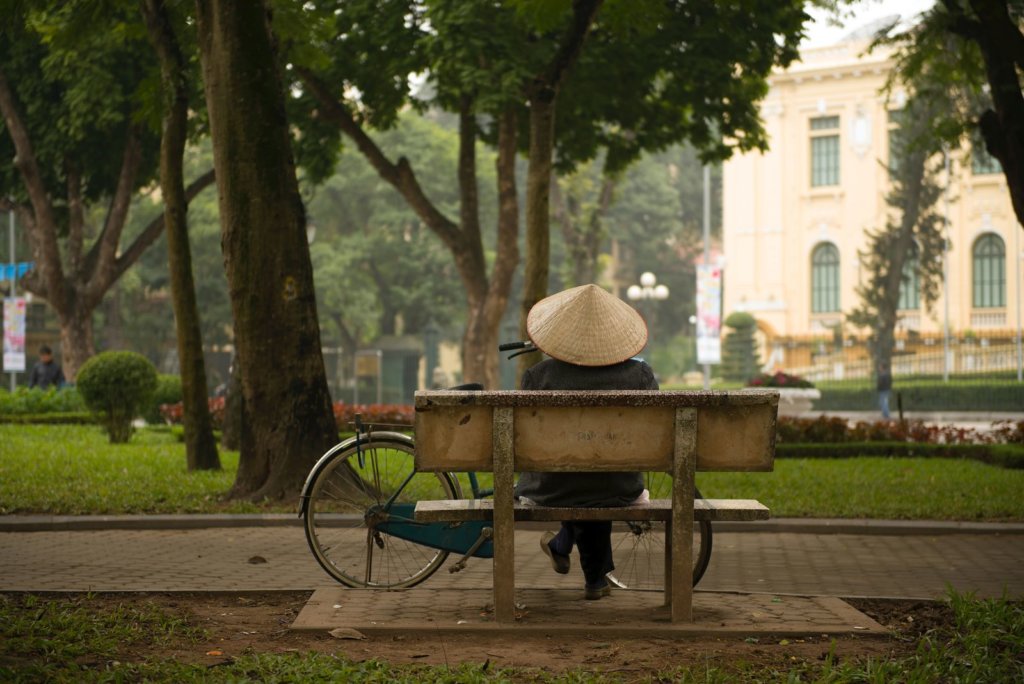
There’s power in pausing. Photo by Lukasz Saczek on Unsplash
Each person has a predominant Buddha family with strengths and weaknesses. For instance, Vajra family people have an aptitude for mental clarity and the ability to correct any distortions. They are scientific, logical. But when they are encumbered, when their energy is bound up, they can become angry, judgmental, and critical.
All of the Buddha families speak to me, but the one I align with the most is the Karma family. Karma family people are hard-workers, they know how to get things done. When their energy is encumbered, they become envious, comparing themselves with others and finding themselves lacking. (Did you laugh upon hearing that? I know I did because the description is so apt.) The meditation for a Karma family person is to be in the flow, to think about the wind picking up a sail so that it moves with ease, not force. In other words, the practice for people like me is to take inspired action, not compulsive action.
I’ll admit, that’s so freaking hard because my compulsive doer is strong, but taking inspired action seems to be the message I’m receiving over and over again. The universe seems to keep telling me, “Pause, my dear. Just pause.” This is also in alignment with my spiritual philosophy because my teacher says, “[M]ovement through speed and pause is an essential factor for each and every animate or inanimate object. Wherever there is existential factor there must be this pulsation. An entity acquires strength and stamina during the pause phase, and emanates vibration during the speed period. There cannot, however, be any absolute speed or absolute pause in the created world.”
In other words, I’m paused now but it won’t be permanent. I just have to wait for wind in my sails.
I dream of a world where we recognize the power of pause. A world where we understand constantly doing all the time is a recipe for burnout. A world where we learn to take inspired action and until that inspiration strikes, we rest easy, knowing our time will come.
Another world is not only possible, it’s probable.
My body is still stiff and sore from the car accident I was in recently. I can’t turn my neck all the way and it hurts when something as lightweight as my purse presses against my trapezius. Because all human beings have an inherent negativity bias, it would be easy for me to focus on the bad instead of the good, the terrible instead of the great.
I do think it’s important to let things be terrible without trying to fix, change, or solve them, but a personal practice for me is also seeing where things are great. Even within my own body, there are places that are peaceful, that are at ease. It’s part of the reason I love my Network Spinal Analysis chiropractor so much. With traditional chiropractors, you tell them, “My neck hurts,” and they go to that pain point to crack your neck and put it back into alignment so the pain stops. Network Spinal Analysis chiropractors, however, do something different.
They briefly and very gently touch a point on your body that’s peaceful. They go to the place of ease rather than pain. They seek to emphasize peace and grounding so that your own body amplifies that energy and heals itself. For instance, they may touch a point on my sacrum and doing so causes a deep breath that sends energy and movement to a point on my neck that hurts. Both exist within my body. I can choose to engage in “all or nothing” thinking and say, “I’m in pain today,” or I can say, “Parts of me are in pain today and other parts feel fine.”

This picture is dark AND light. It’s both at the same time. Photo by Stephen Leonardi on Unsplash
Similarly, with my novel, when I think of the piece overall, I’m quick to tell you it’s terrible, complete garbage. Except, that’s not the full picture. Parts of the novel are terrible and need to be reworked, absolutely. But there are also parts that are great. There are lines that make me laugh like this one, “After exhausting the safe topics, like complaining about work, the weather, and other news events, the table would inevitably fall silent and still like the Bay Area during Burning Man week.”
I’ve read that line numerous times, but it still makes me chuckle. So no, the novel isn’t absolutely terrible. It has some gems within it. Why don’t I focus on that?
The reality is there will always be an invitation to the fear and negativity party, but I can choose to decline. I can choose to say, “I won’t be attending.” Furthermore, I can center myself by aligning with a higher power. My spiritual teacher says over and over again if a person takes shelter in the Supreme, they need not be afraid of anything in this world. That the divine is “more courageous than the most courageous, and braver than the bravest. Those who take shelter in [the divine] are therefore bound to acquire these qualities: courage, bravery, chivalry, and so on. Once endowed with such qualities, what is there to fear?”
That’s the perspective I want to live from and that means for today, I’m choosing to view the world as mostly safe, people as mostly good, and my body as mostly fine. In other words, I’m letting things be great.
I dream of a world where we acknowledge not only the terrible things, but also the great things. A world where we understand even within our own bodies some parts may hurt while others are fine. A world where we understand rarely are things all or nothing, black or white, instead they’re much more complicated. A world where we let things be great.
Another world is not only possible, it’s probable.
Right now I’m participating in NaNoWriMo (National Novel Writing Month), which means I’m aiming to write 50,000 words in a month. For the uninitiated, that’s a novel the length of The Great Gatsby. It’s approximately 75 pages single spaced in a word processing document. I’m pretty sure this new novel I’m working on is the worst piece of writing in the known universe, but I’m pressing forward.
The advice for those writing during NaNoWriMo is to tame your inner editor. Instead of hitting the “delete” key when you think something sounds awful, just keep putting words on the page. Let the writing be bad. There’s something liberating in indulging in that mentality. To revel in it. To acknowledge, “I know this can be said better but I don’t care.”
As someone with a history of perfectionism, it’s difficult for me to stop judging end results, but that’s what I’m encouraging myself to do right now. I’m acknowledging the new novel is bad, that it will likely change a lot before I’m finished, but I’m letting that be OK. I’m not nitpicking myself in the moment and instead giving myself freedom to relax, to explore, to try new things on the page. It’s fun!
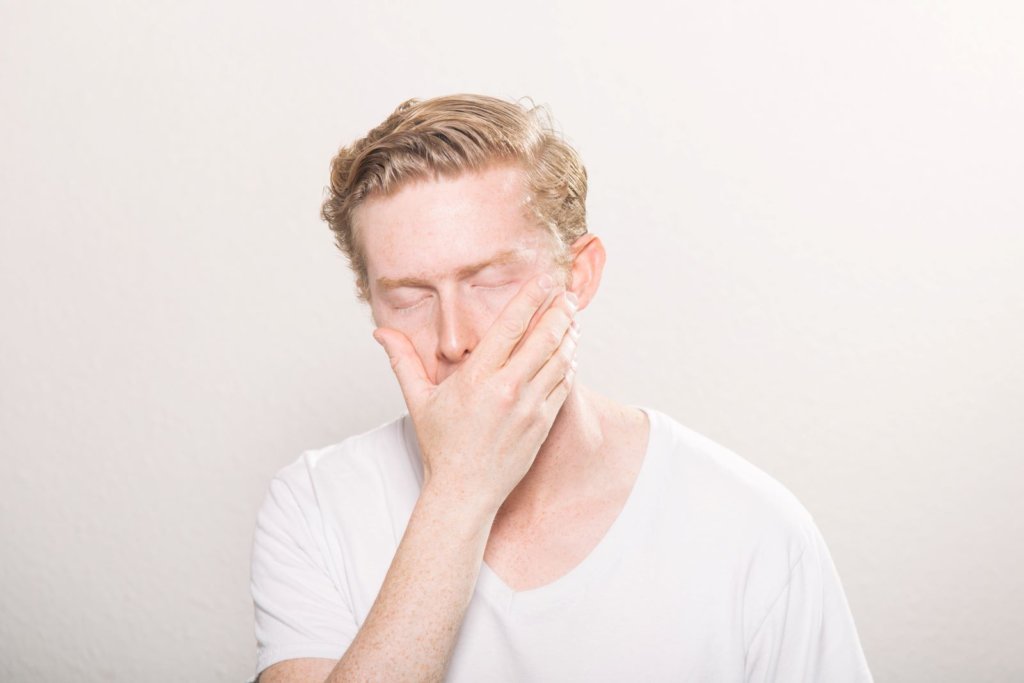
Some things will cause you to shake your head they’re so bad. Photo by Kyle Glenn on Unsplash
I notice this principle, “Let it be terrible,” applies not only to creative projects, but also to the physical body (sometimes). Headline, I’m fine, but on Saturday night I was in a car accident. While driving through an intersection, a car ran a red light and hit the driver’s side of my friend’s car. We swerved to the right and the impact jostled me so I banged up my elbow and knees against the console very, very minorly. It’s my right shoulder blade that hurts this morning from the whiplash.
I took out a tennis ball and massaged the shoulder blade but it still hurts. I don’t think anything is dislocated; it just hurts. Because I was in a car accident. And instead of rushing to fix it, change it, solve it, I said to the pain, “I’m here. I’m listening, body.” I’m letting the pain be here, I’m letting things be terrible because sometimes that’s all we can do. The body heals on its own timeframe and that doesn’t necessarily mean something is wrong.
It reminds me of this NY Times article I read a few years ago where an American woman had a hysterectomy in Germany. When she asked about painkillers post-surgery, her medical team said she’d be given ibuprofen and that’s it. When she talked to one of her doctors about it, he said, “Pain is a part of life. We cannot eliminate it nor do we want to. The pain will guide you. You will know when to rest more; you will know when you are healing. If I give you Vicodin, you will no longer feel the pain, yes, but you will no longer know what your body is telling you. You might overexert yourself because you are no longer feeling the pain signals. All you need is rest.”
It confounded her, but it turned out her doctors were right. She didn’t need painkillers – she needed rest and patience. She let things be terrible, she let her body feel terrible, and that was her wisest course of action. For this month I, too, am letting things be terrible in more ways than I anticipated, and that perhaps is a greater accomplishment than writing the worst novel the world has ever seen in the course of 30 days.
I dream of a world where we let things be terrible sometimes. A world where we let our creativity flow without any hindrance. A world where we check our self-editors at the door. A world where we let ourselves feel pain when it arises because it provides us with important information to guide our lives and direct our attention.
Another world is not only possible, it’s probable.
